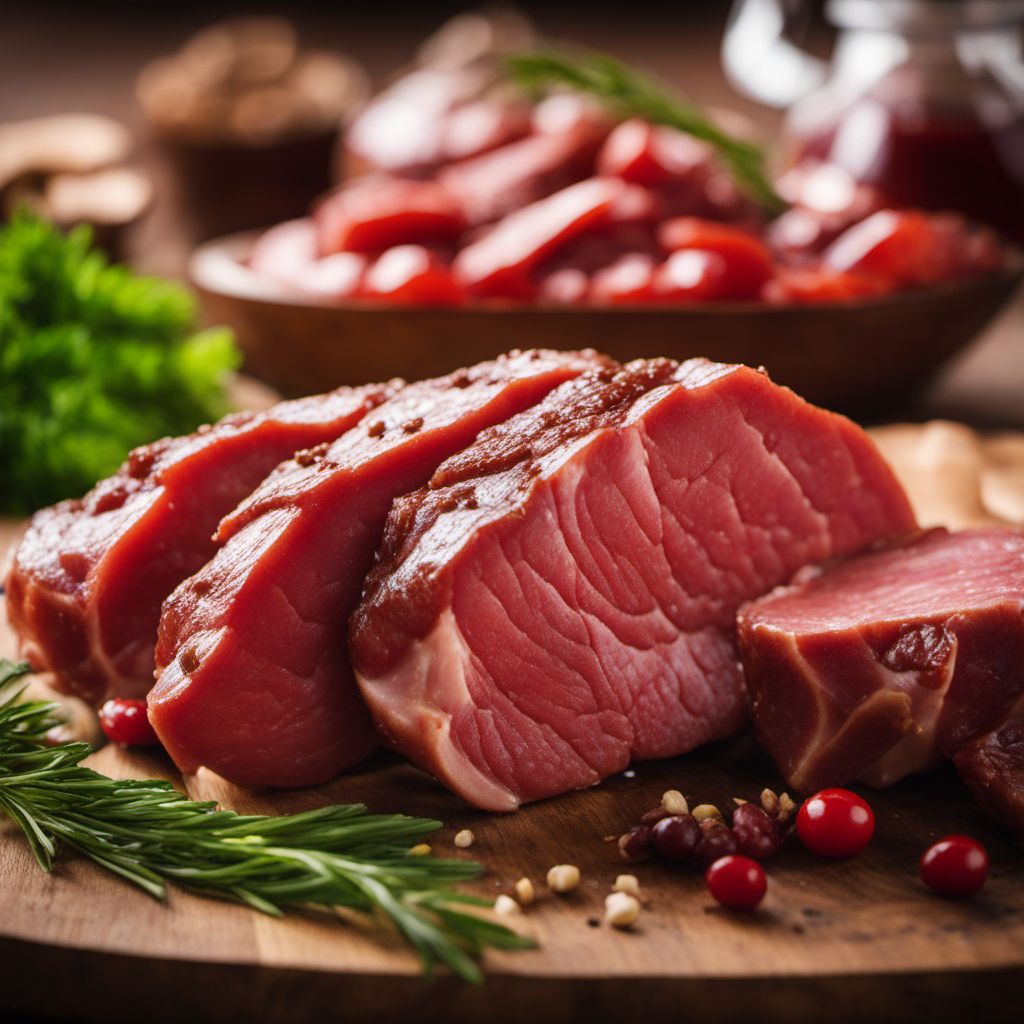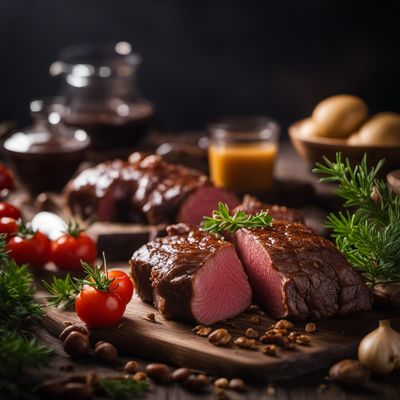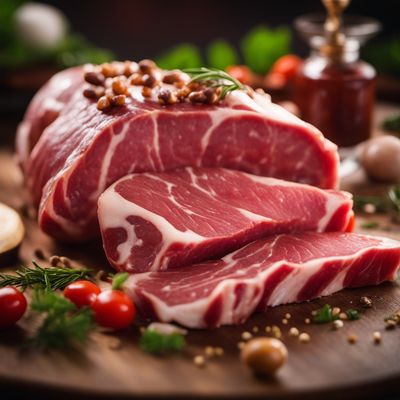
Ingredient
Deer, red fresh meat
The Game-Changer: Red Deer Meat
Red deer meat comes from the red deer species, which is native to Europe, Asia, and North Africa. It has a deep red color and a distinct flavor that is often described as robust and slightly gamey. The meat is lean and low in fat, making it a healthier alternative to other red meats. Red deer meat can be prepared in various ways, including grilling, roasting, stewing, or even used in sausages and burgers.
Origins and history
Red deer meat has a long history of consumption, dating back to ancient times. It was highly valued by hunters and gatherers for its nutritional benefits and availability. Red deer hunting has been a popular activity in many cultures, particularly in Europe, where it is considered a traditional sport. Today, red deer meat is enjoyed in various cuisines around the world, including European, Asian, and North American dishes.
Nutritional information
Red deer meat is a rich source of high-quality protein, iron, and B vitamins. It is also low in saturated fat and cholesterol. A 3-ounce (85g) serving of cooked red deer meat provides approximately 150 calories, 26g of protein, and 3g of fat.
Allergens
Red deer meat does not typically pose any allergenic risks. However, individuals with a sensitivity to game meats or specific proteins found in red meat may experience adverse reactions. It is advisable to consume red deer meat in moderation and consult with a healthcare professional if you have any concerns.
How to select
When selecting red deer meat, look for cuts that are deep red in color and have a fine texture. The meat should be firm to the touch and free from any unpleasant odors. Opt for cuts that are well-marbled with fat, as this helps to enhance the flavor and tenderness. If purchasing from a butcher, ask for recommendations on the best cuts for your desired cooking method.
Storage recommendations
To maintain the freshness and quality of red deer meat, it should be stored in the refrigerator at a temperature below 40°F (4°C). It is best to wrap the meat tightly in plastic wrap or place it in an airtight container to prevent exposure to air and moisture. Cooked red deer meat can be stored in the refrigerator for up to 3-4 days. For long-term storage, it can be frozen for up to 6-9 months.
How to produce
Raising red deer for meat production requires specialized knowledge and resources. It is typically done on dedicated deer farms or ranches, where the animals are raised in a controlled environment. This ensures the quality and safety of the meat. If you are interested in producing red deer meat, it is recommended to seek guidance from experienced deer farmers or agricultural experts.
Preparation tips
Red deer meat can be prepared using various cooking methods, including grilling, roasting, stewing, or even used in sausages and burgers. It pairs well with bold flavors and aromatic herbs and spices. When cooking red deer meat, it is important to avoid overcooking, as it can result in a tough and dry texture. Marinating the meat prior to cooking can help to enhance its tenderness and flavor. It is also recommended to let the meat rest for a few minutes after cooking to allow the juices to redistribute.
Substitutions
Beef, bison, or elk meat can be used as substitutes for red deer meat. These meats have a similar flavor profile and can be prepared using similar cooking methods. However, keep in mind that the taste and texture may vary slightly.
Culinary uses
Red deer meat is commonly used in traditional European dishes such as venison stew, roast venison, and venison sausages. It can also be incorporated into modern cuisines, including Asian-inspired stir-fries, tacos, and burgers. Additionally, red deer meat can be used to make jerky, pâtés, and terrines for a gourmet twist.
Availability
Red deer meat is commonly available in regions where red deer are native or have been introduced for hunting or farming purposes. This includes Europe, Asia, North America, and parts of Africa. It can be found in specialty butcher shops, game meat suppliers, and some supermarkets. However, availability may vary depending on local regulations and hunting seasons.
More ingredients from this category

Wapiti elk meat
The Majestic Delicacy: Wapiti Elk Meat

European moose meat
The Majestic Delicacy: European Moose Meat Unveiled

Deer, fallow fresh meat
The Delicate Delights of Fallow Deer Meat

Reindeer meat
The Arctic Delicacy

Roe deer meat
Delicate Delight: Roe Deer Meat

Deer, minced meat
Venison: The Lean and Flavorful Game Meat